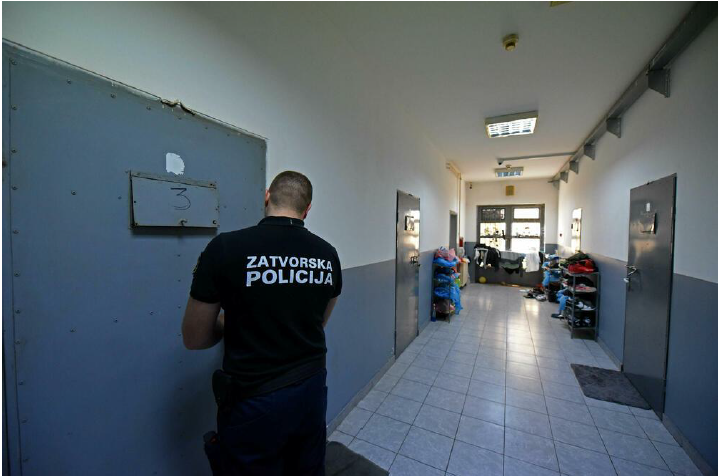Montenegro, with an incarceration rate above the European average, must implement both institutional and operational reforms to tackle serious issues in its prison system chief among them, overcrowding. Experts speaking to MINA agree the situation is troubling.
Ivan Radulović of Civic Alliance said progress has been made in respecting the rights of detainees, but persistent challenges remain.
Marijana Sinđić, senior advisor at the Ombudsman’s office, stressed that her institution won’t be satisfied until even isolated human rights violations in detention are eliminated. “The way we treat people in detention reflects how we treat human rights overall,” she said.
The Ombudsman’s office, which also acts as the National Preventive Mechanism, visits detention facilities to monitor conditions and handles confidential complaints from detainees.
Radulović noted that Montenegro has 168 inmates per 100,000 people well above the European average of 124 without a matching expansion in infrastructure or capacity. Overcrowding remains the biggest problem, affecting living conditions, healthcare, and overall wellbeing.
In 2023, the Investigative Prison housed 390 people far beyond its capacity of 270. Sinđić warned this could lead to increased judgments against Montenegro at the European Court of Human Rights. Overcrowding also limits privacy, visitation rights, and daily outdoor time.
Radulović argued that minor reforms aren’t enough. “Unless there are major reforms, nothing will change,” he said.
Sinđić called for systemic reforms, including the construction of new facilities and broader use of alternative sentencing. She emphasized the need for improvements in healthcare access, rehabilitation programs, and reintegration efforts “Reform must be rooted in humanity, not punishment.”
She welcomed progress like the new prison hospital under construction but noted the lack of an in-house psychologist remains an issue.
On the topic of torture and abuse, Radulović said dignity and rights must remain intact when a person is detained. He noted a drop in reported torture cases but questioned whether that reflects progress or fear of reporting. “Investigations are often slow and discouraging,” he said.
Sinđić believes the legal framework exists for adequate protection, citing the Milić-Nikezić case where the Ombudsman’s findings were pivotal in a European Court ruling. However, in other cases, such as the 2015 abuse of prisoners, the justice system failed prisoners were convicted quickly, but officials only faced a non-final verdict in 2019.
She called for deeper judicial reform, more judges, and true independence of the courts.
Regarding police abuse, Radulović said institutional passivity enabled it to continue. Though cases have decreased, systemic judicial reforms are still needed.
A CPT visit is planned this year. Civic Alliance has begun visiting police facilities and will publish a report in June. Conditions in Bijelo Polje’s station were “far below standard,” though other towns fared better.
On the withdrawn proposal to extend pretrial detention from three to five years for serious crimes, Sinđić said it would have violated constitutional and international norms. “Pretrial detention is not a punishment,” she said.
Radulović added that this proposal followed a high-profile double murder, but instead of accountability, institutions played the blame game. “In that case, the whole system failed,” he concluded.
Written by our correspondent A.A.



